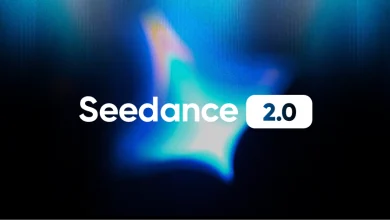
2025 has established a fundamental change in user behavior and expectations not seen since the rise of Google in the early 2000s. For example, recent studies show AI tool adoption has jumped to 38% across LLMs such as ChatGPT, Perplexity, Claude, and Gemini. The replacement of evaluating ten search results has given rise to a personalized, comprehensive, and synthesized set of answers from LLMs like ChatGPT.
This marks an evolution in search technology, but also a transformation in how people discover and consume information. For businesses, the implications of this change are still in their early stages, but early movers will have an advantage by getting mentioned where their competitors do not.
The Strategic Imperative
The goal for brands is clear: be mentioned as a product or service resource when related searches are performed. This process, called Answer Engine Optimization (AEO), has its roots in SEO, with some additional considerations that are emerging.
SEO is a good parallel to explain how AEO fits into business initiatives starting now. With SEO, brands built pages to target keywords based on factors such as volume, keyword difficulty, traffic potential, and intent.
With AEO, the principles have shifted from keyword research to answer research. While traditional search traffic is dwindling (due to user shifts to LLMs and Google providing summaries in their “AI Overviews”), we can still utilize keyword research and consider it in terms of questions, clustering keywords that share similar intent to provide answers.
While the focus shifts, leveraging keyword data remains valuable as it provides a foundation of user intent. However, with AEO, searchers can personalize their conversations, prompting a better response, and the emerging opportunity for brands to be part of the conversation.
To begin the process of optimizing for LLMs, we need to focus on the types of content that we think will be important to LLM users. Product questions are, therefore, a core content strategy that needs to be addressed.
Let’s say you are a project management software. An LLM search may start with something like “best project management software,” then evolve to “best project management software for small business,” then to a drilldown, prompted by the LLM’s conversation, to provide contextual relevancy to the user, eventually leading to a recommended list of “best project management software for accountants.”
LLMs, unlike search engines, will mention a brand if the content on its website showcases depth and topical authority on specific topics. In the case of the project management for accountants software, there would therefore be a content strategy dedicated to resources for accountants related to project management (ex. Time tracking, client portals, reporting, integrations, etc.).
Customer service questions are also likely to be volunteered by the LLM, or asked by the user, giving more business case to spend time making sure question research is an ongoing effort. For example, beyond the general “best x” searches, expect users to probe for more contextual information:
- What features does “x” offer?
- What are the pricing packages?
- How does “x” compare to “y?”
- What sort of customization does “x” have?
- What integrations does “x” have?
Currently, there is a swath of research tools emerging – AI search visibility, brand sentiment, competitive benchmarking, etc. – that may help with these efforts and consolidate the answers for you. They also track competitors and provide recommendations on how to improve your visibility.
Keep in mind these are qualitative data sets, as no LLM has released search volume information on topical searches… yet. That said, the best thing brands can do is to monitor these tools and begin to understand how they are mentioned, if at all, and learn what to do to improve their chances.
The Strategic Focus
For our clients, we advise the efforts that have the best payoff for the resources involved. Not every piece of AEO marketing carries the same weight, and the following are emerging as areas to focus:
- Topical authority building: This refers to the publication of topics that are related to the products and services you offer. Keyword research via traditional SEO means is still relevant here, as is the concept of topic clustering, with the added recommendation of focusing on the end-user as much as possible (real topics prospects ask about, competitor data, first-party research, etc.), even if it means there may be no keyword volume whatsoever. Traditional SEO, in this case, can be used as a guide, but not the definitive construct on which all content efforts are based.
- Content distribution: LLMs take their answer influence from several prominent locations: your website and social channels (YouTube). Reddit may not be an “owned” channel, but you can influence the conversations there by joining and contributing.
- 3rd party mentions: LLMs summarize search results from a number of sources, so the strategy here is to ensure your business is listed everywhere that is meaningful to your brand. Wikipedia (if possible), across media outlets (via PR), on review sites, roundup posts, across affiliate networks, industry associations, and directory sites.
Getting Started
An obvious, and potentially helpful strategy for brands that are just getting started is to go to ChatGPT and start with a search that is related to your primary product offering, such as “who are the best companies for ‘x’ in ‘y’ industry?”
Regardless of whether you appear or not, ask the LLM where it sourced its data and use this information to fuel your AEO strategy. LLMs will often provide you with the specific rationale and sites they referenced to create their recommendations. Don’t stop there, ask ChatGPT for a list of related questions that users might use to find companies like yours.
Document these questions, work on the above strategic focus, and continually evolve your approach. When you are ready to invest in an AEO tool for monitoring, the singular focus of AI question tracking is a good first step for reporting.
In summary, creating product-led content, distributing content on the channels your prospects hang out on, and working on 3rd-party mentions are the leading ways to gain traction in LLM answers. The future of discovery hinges heavily on brand building, rather than reverse engineering algorithms for top ten placements.




